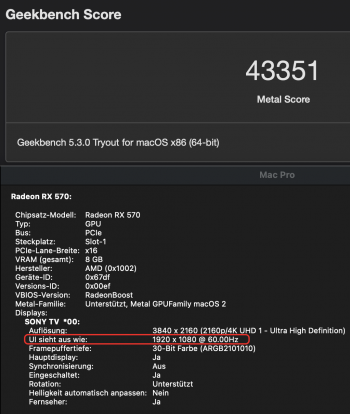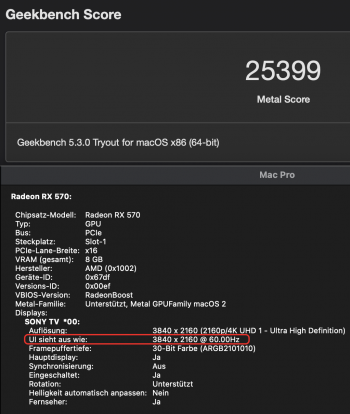I don't understand if you're kidding me, anyway... I specify that I swapped the video card and the nvme drive (Crucial P1) some time ago, because the disk performance was unsatisfactory. Now I reverted the device, and while graphic performance won't be changed much, drive access seems a little poor (my fault, didn't test it before the new swap). Using Blackmagic Disk Speed Test, both read and write decrease from about not enthusiastic 1300 MB/s to less to 500 MB/s after some tests. But it's not this the question now.Go to sleep and repeat the test after sleep mode.
But the surprise has come now: I waked remotely from sleep my MacPro, and launched Geekbench test again, and scored 45K in OpenCL and 50K in Metal test. So this raises my doubt about your sleep talk... 😁
I will remain in doubt until tomorrow, if these results depend only on the fact that I'm connected remotely with Apple Remote Desktop, or if the short sleep was beneficial for the Mac and his gpu.
Last edited:



